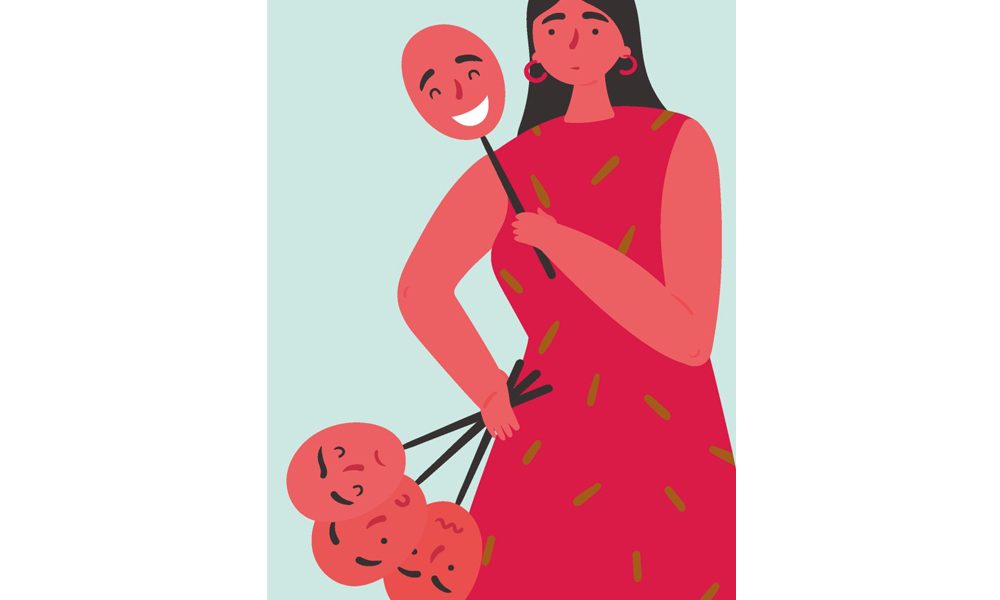In a world where so many of us struggle to find time for ourselves, subservience – or people pleasing – is not a helpful personality trait to possess. For some of us, an inbuilt eagerness to please goes hand in hand with low self-worth or deeper psychological issues, but most of us will recognise the desire to prioritise others above ourselves; to take on more work than is doable, or to avoid conflict by brushing our own hurt feelings aside – all symptomatic of people pleasing.
But, however good your intentions, these compliant behaviours can lead to burnout, resentment and anger, which in turn, can be bad for your health, your relationships and your wellbeing. So, we asked two experts how to say no to the things you don’t want to do – and free up time for things that please you instead…
Chloe Brotheridge, hypnotherapist and coach at calmer-you.com and author of The Anxiety Solution and Brave New Girl, explains how the problem starts: “Many of us are raised to be people pleasers; we’re praised for being ‘good’ boys or girls (this especially affects girls) encouraged to put others first and told that taking care of yourself is selfish, but actually we risk ending up resentful or burning out because we’re not looking after ourselves.”
Suzy Ashworth TEDx speaker, Hay House author and business strategist (suzyashworth.com) agrees, saying: “People pleasers want everyone around them to be happy and they will do whatever they can to make that a reality. While that’s nice, it can leave you feeling stressed out and overwhelmed because you start to put the needs of everyone else, before your own.”
Our busy modern lives mean that pressures on our time are at critical levels thanks to obligations with work, social lives and families leaving very little down time to practise self-care or simply be. With the World Health Organisation recently recognising burn-out as a legitimate syndrome, it’s clear that something’s got to give when it comes to being a yes-woman, but for some people it’s not as simple as making sure to leave the office at 5.30 or a spot of tactical diary management. Suzy believes some of us have a compulsion to comply, “Saying yes to everything, even when you mean no, is a habit for some, but for others, it is almost an addiction because it makes them feel needed and good.”
Living in a constant state of burnout is physically, emotionally and mentally exhausting, but it’s not just a time-constraint problem. Further damaging issues stem from a people-pleasing person’s endless striving for perfection as they will often believe no task or situation is ever completed to a satisfactory degree.
Chloe explains: “This level of perfectionism creates lots of anxiety – there is a huge pressure to appear perfect to others for a people pleaser; mistakes seem unacceptable and they may beat themselves up. People pleasers might never fully express themselves due to so much fear about what people think, which is a shame and could mean that others don’t benefit from their ideas.”
A change in mindset seems essential, then, if we want to avoid feeling constantly put-upon, unappreciated and creatively stifled. Where do we start? Chloe has this advice for turning your people-pleasing on its head: “Remember that there is nothing morally superior about people pleasing; it’s actually a form of manipulation. Burning out and secretly seething with rage at the other person does no one any favours.” Touché.
Start by valuing yourself enough to push back. A burnt-out empty shell of a person is of no use to anyone, least of all yourself, and you deserve more than being left with a sub-par version of your usual productive, enthusiastic self.
Indeed, says Suzy, “It can be hard to say no to family, friends, and colleagues because you don’t want to be seen as lazy, uncaring or selfish but you need to set healthy boundaries as the current situation isn’t a healthy or sustainable one. Remember, you have a choice to say yes or no, and while saying no is hard the first time it will get easier and you will find a balance that is right for you.”
Cat got your tongue? If you’re not used to standing your ground or it’s always expected you’ll say yes it can be daunting to decline the usual jobs, favours, trips or blame. Firstly, remember that pessimism is a common symptom of both burnout and peoplepleasing and that saying no will likely not be as bad as you’re imagining. Then, try a new softly-softly approach to acting out your new, assertive self. Chloe says, “Tell people you’ll get back to them – that way you can formulate your no and build up your courage, rather than saying yes because you’ve been put on the spot.”
And if all else fails, just say no…
How to say no!
Mind coach and TV presenter Anna Williamson tells us how to say no effectively:
• Be confident in knowing why, and what you’re saying no to.
• Hold your head up, make eye contact and speak in a self-assured voice.
• Weigh up the pros and cons of why you’re saying no beforehand.
• Give a reason to back up your no.
• Discover other ways to say no, such ‘not right now’, or ‘I don’t feel okay with that’.
• Start the ‘no’ with a positive to alleviate any awkwardness.
• Be tactful with your ‘no’ – read the situation you’re in and adjust your tone accordingly.
• Be kind, but be clear and honest. No means no, and that’s OK.



















